Appearence:
- Labrets made from wood
- Ear Plugs
- tribal scarrification across their entire bodies
Notes: - they are a isolated tribe which live in the dense forests which border the OWLF millitary outpost from the other maps
- their main purpose is to prevent players from attempting to travel from the Millitary outpost to the other maps on foot
- controlled by advanced AI which allow them to perform extremely complex tactics and strategies
- they are a hyperagressive tribe of headhunters
Weapons: - Blowguns (with poison darts)
- Tiro (with hunting arrows, fishing arrows and war arrows)
- Arco (with hunting arrows and fishing arrows)
- Slingshots
- Tacape (with a flat paddle-like design)
- macanas
- hunting spears
- fishing spears
Shelters/buildings (only found in and around a tribal village):
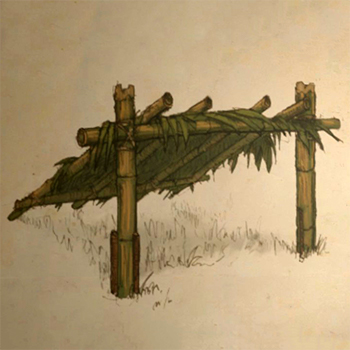
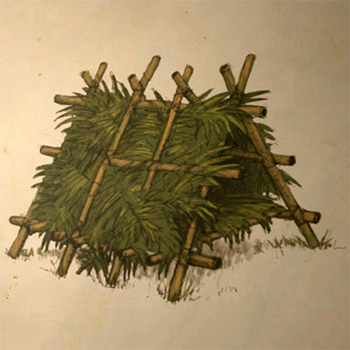
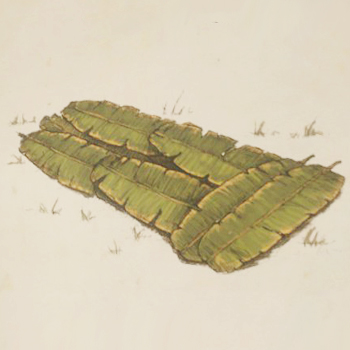
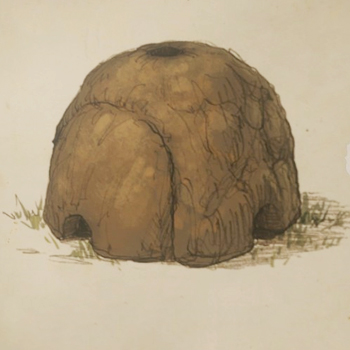
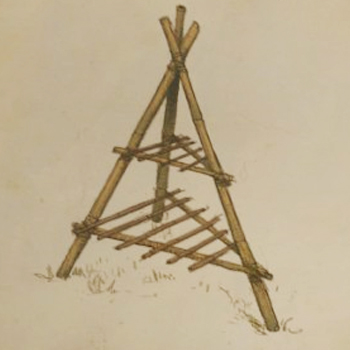
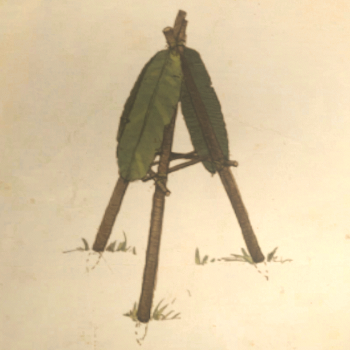
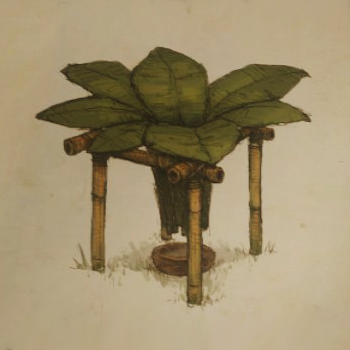
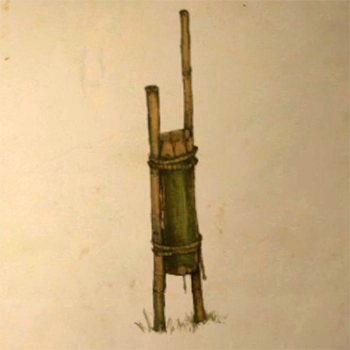
Language:
- Phonetic Inventory
Here is the foundation of the Purumé language’s sounds:
Vowels
Similar to many Amazonian languages, the Purumé vowel system is simple:
a, e, i, o, u (all short and pure vowels).
Nasal vowels are included for variation: ã, ẽ, ĩ, õ, ũ.
Consonants
The consonant system includes clicks along with sounds common in Amazonian languages.
- Word Structure
Words in Purumé generally follow a CVCV (consonant-vowel) or CVN (ending in a nasal) pattern.
Click consonants often appear at the start or middle of words but not at the end.
Nasal vowels are frequent in suffixes.
Examples of Purumé words:
kúǃa – fire
nũmbe – river
páŋǂi – bird
hẽlǁo – tree
ʃãŋwá – earth
- Grammar Features
Drawing from Amazonian linguistic traits, here are a few basic grammatical rules for Purumé:
Word Order
Subject-Object-Verb (SOV) is the standard word order.
Example:
Purumé sentence:
“Ta ǀo hẽlǁo kúǃa.”
Literal translation: Man tree fire.
Meaning: The man burns the tree.
Noun Classification
Purumé nouns are grouped into categories:
-
Animate: Humans, animals, spirits
-
Inanimate: Plants, objects, concepts
-
Water-related: Rivers, lakes, rain
Class markers attach to nouns:
Animate: -ta (suffix)
Inanimate: -ku
Water: -no
Examples:
páŋǂi-ta – bird (animate)
hẽlǁo-ku – tree (inanimate)
nũmbe-no – river (water)
Verbal System
Verbs are marked for tense and aspect.
Past: Prefix ka-
Present: No marker
Future: Prefix to-
Examples:
ka-kúǃa – burned (past)
kúǃa – burns (present)
to-kúǃa – will burn (future)
- Cultural Influence on Language
Click sounds in Purumé could have a symbolic or ritual function, used specifically in:
Spiritual invocations
Naming ceremonies
Hunting calls (to mimic animals)
Example Ritual Phrase:
“ǃaŋ ǂu-hẽ kúǃa ǁoma.”
Literal: “Spirit, you give fire light.”
-
Example Sentences
-
“Ta ǀo páŋǂi-ta to-hẽlǁo-ku.”
“The man will see the bird in the tree.” -
“Ka-hũnũ ǃaŋ táno.”
“The spirit spoke by the water.” -
“Páŋǂi-ta ǂãŋ kúǃa ǁoma.”
“The bird calls fire bright.”
Ps the images where sorced from the game green hell



